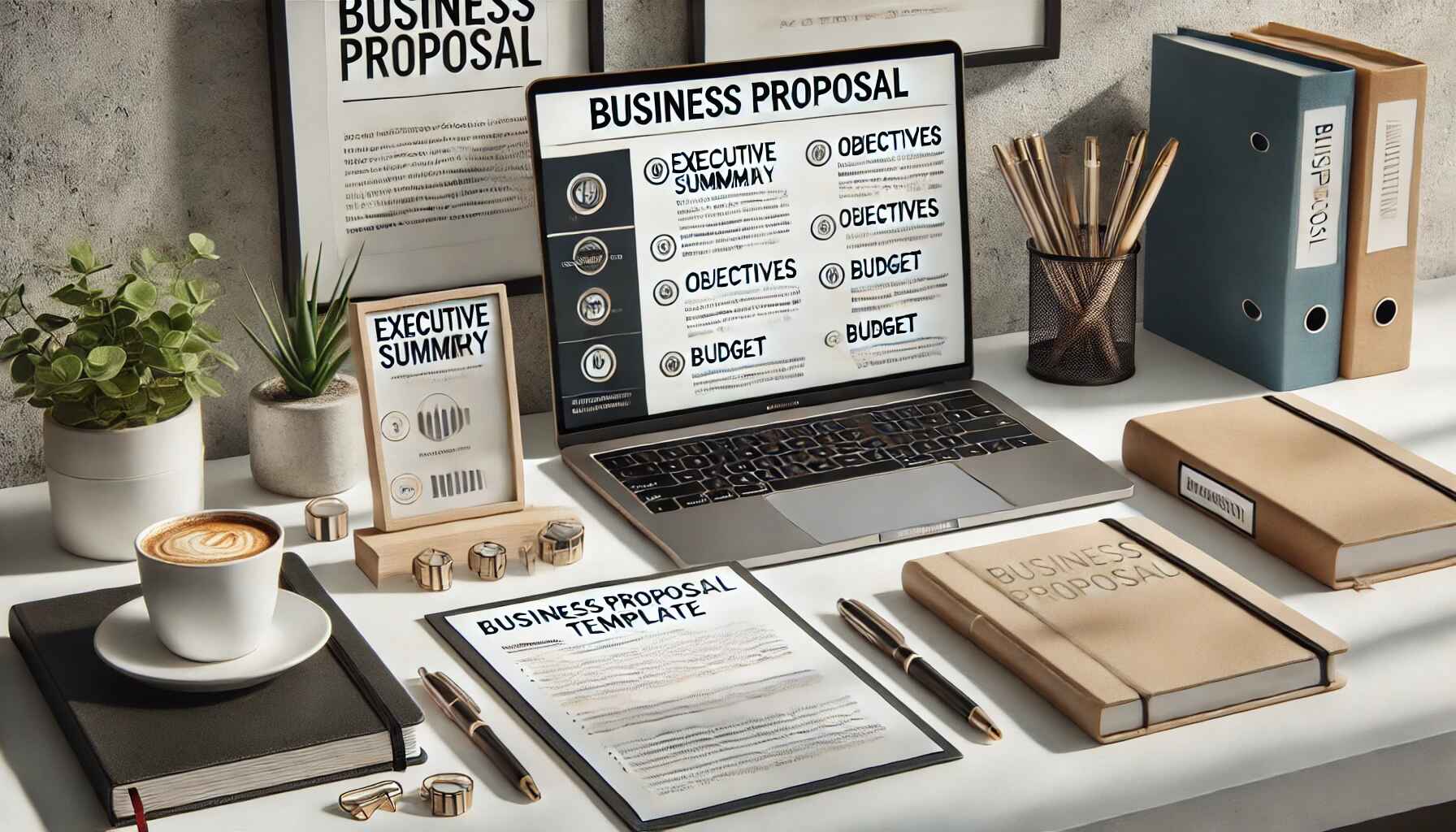How to Write a Business Proposal: Examples and Free Templates
Fundamentally, to establish partnerships, close deals, or extend your business reach, you essentially need a well-written business proposal. Your innovative idea, a new service presentation, or a product requires presentation before the world, and your business is represented in a professional proposition.
This guide will help you finish the process of writing a business proposal, including examples and free templates to make everything much easier.
Introduction to Business Proposals
What is a business proposal?
A business proposition is a formal document presented before potential clients that offers solutions to a problem, an offer of a service, or supply of a product. However, unlike the business plan, which is the description of how a business is being operated, the business proposition works to convince the recipient of the acceptance of a business-to-business agreement or partnership.
Aspects of Business Proposals in the current business environment. Actually the difference between winning or losing that contract in an increasingly competitive marketplace. One clearly explains to them your area of specialization as well as demonstrates how your solution aligns with their need.
Types of Business Proposals
Solicited and Unsolicited Proposals
olicited Proposals. These are requested by the client through RFPs (Request for Proposals) or direct communication.
Unsolicited Proposals: These are proactive proposals sent to potential clients without a formal request that show off your services or products.
One-time proposals vs. Ongoing proposals:
One-Time Proposals: For a single project or proposal opportunity.
Working Proposals: To be used for long-term partnership or repeat services.
Key Elements of a Winning Business Proposal
1. Executive Summary
This section provides a brief overview of the proposal, summarizing the main points and the value you bring to the table.
2. Problem Statement
Clearly define the client’s problem or need. Use data or examples to validate the issue's relevance.
3. Proposed Solution
Detail your approach to addressing the problem, including deliverables, timelines, and expected outcomes.
4. Pricing and Financial Details
Provide transparent pricing and payment terms. Break down costs to help the client understand the value they’re receiving.
5. Call to Action (CTA)
End with a strong, persuasive CTA encouraging the client to take the next step, whether it’s scheduling a meeting or signing an agreement.
Step-by-Step Guide: How to Write Business Proposal
Step 1: Research and Understand Your Audience
Gather insights about your prospective client’s business, challenges, and goals. Tailor your proposal to their needs.
Step 2: Define the Proposal's Objective
Clarify the primary goal of your proposal. Are you aiming to secure a contract, present a new service, or propose a partnership?
Step 3: Organize the Structure
Follow a logical format:
Executive Summary
Introduction
Problem Statement
Solution Proposal
Pricing
Conclusion and CTA
Step 4: Write Persuasively
Use clear, concise, and compelling language. Address how your solution benefits the client.
Step 5: Proofread and Revise
Ensure your proposal is error-free and professionally formatted. Review for clarity, grammar, and consistency.
Practical Examples of Business Proposals
Example 1: Small Business Startup Proposal
Focuses on securing initial funding or partnerships for new ventures.
Example 2: Enterprise-Level Project Proposal
Targets large corporations with detailed timelines, deliverables, and pricing models.
Example 3: Non-Profit Fundraising Proposal
Highlights mission alignment and includes data-driven results for potential donors.
Free Templates for Business Proposals
Overview of Popular Free Templates
Several platforms like HubSpot, PandaDoc, and Microsoft Office offer customizable templates to streamline the proposal creation process.
How to Customize Templates for Specific Needs
Edit templates to reflect your branding, tailor content to the client’s needs, and add relevant visuals or data.
Tips for Creating an Effective Business Proposal
Design for Visual Appeal: Use professional layouts and visuals like charts or infographics.
Align Tone with Target Audience: Match your tone and language to the recipient’s industry or corporate culture.
Include Testimonials or Case Studies: Showcase your credibility and past successes.
Common Mistakes to Avoid in Business Proposals
Overloading with Information: Be concise and prioritize relevance.
Failing to Address Stakeholders’ Concerns: Anticipate questions and provide clear answers.
Neglecting Follow-Up: Reach out to the client post-submission for feedback or further discussion.
FAQs on Business Proposals
What Is the Difference Between a Business Plan and a Business Proposal?
A business plan outlines internal strategies; a proposal persuades external stakeholders.
How Long Should a Business Proposal Be?
Generally, 5–10 pages, depending on complexity.
Can I Use the Same Proposal Template for Different Clients?
Yes, but personalize each proposal to the client’s specific needs.
What Are the Best Tools for Writing Business Proposals?
PandaDoc, Proposify, and Microsoft Word are excellent options.
How Do I Ensure My Proposal Stands Out?
Address the client’s needs directly and use a visually appealing design.
Should I Include Graphics in My Proposal?
Absolutely. Visuals make data more engaging and easier to understand.
Conclusion: Mastering the Art of Business Proposals
Writing a business proposal doesn’t have to be daunting. By following this guide, leveraging examples, and utilizing free templates, you can craft compelling proposals that captivate your audience and achieve results.









